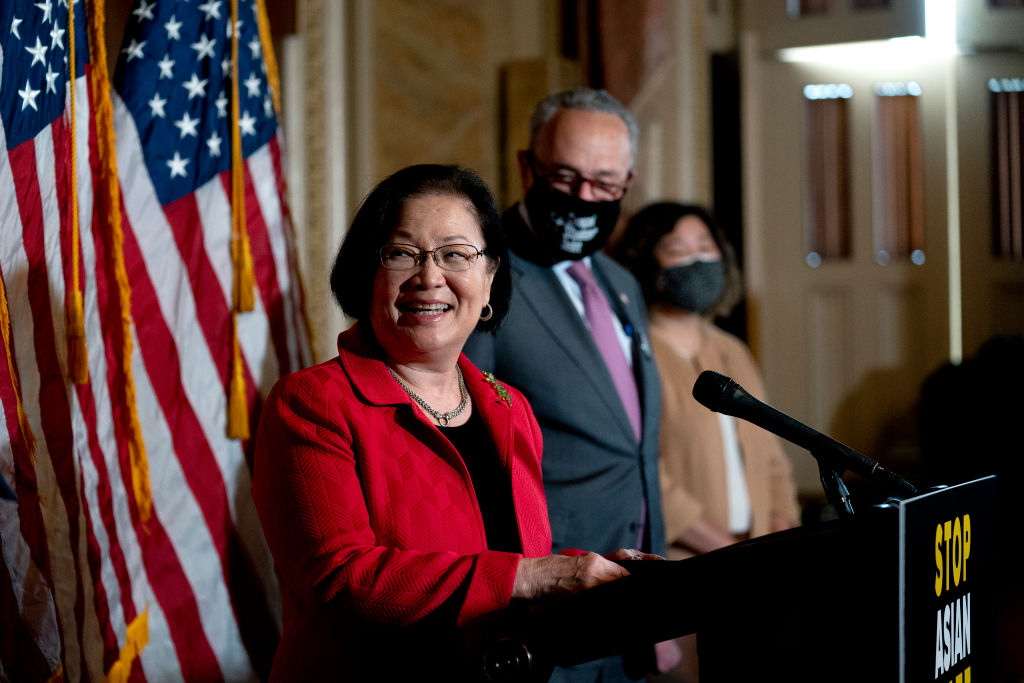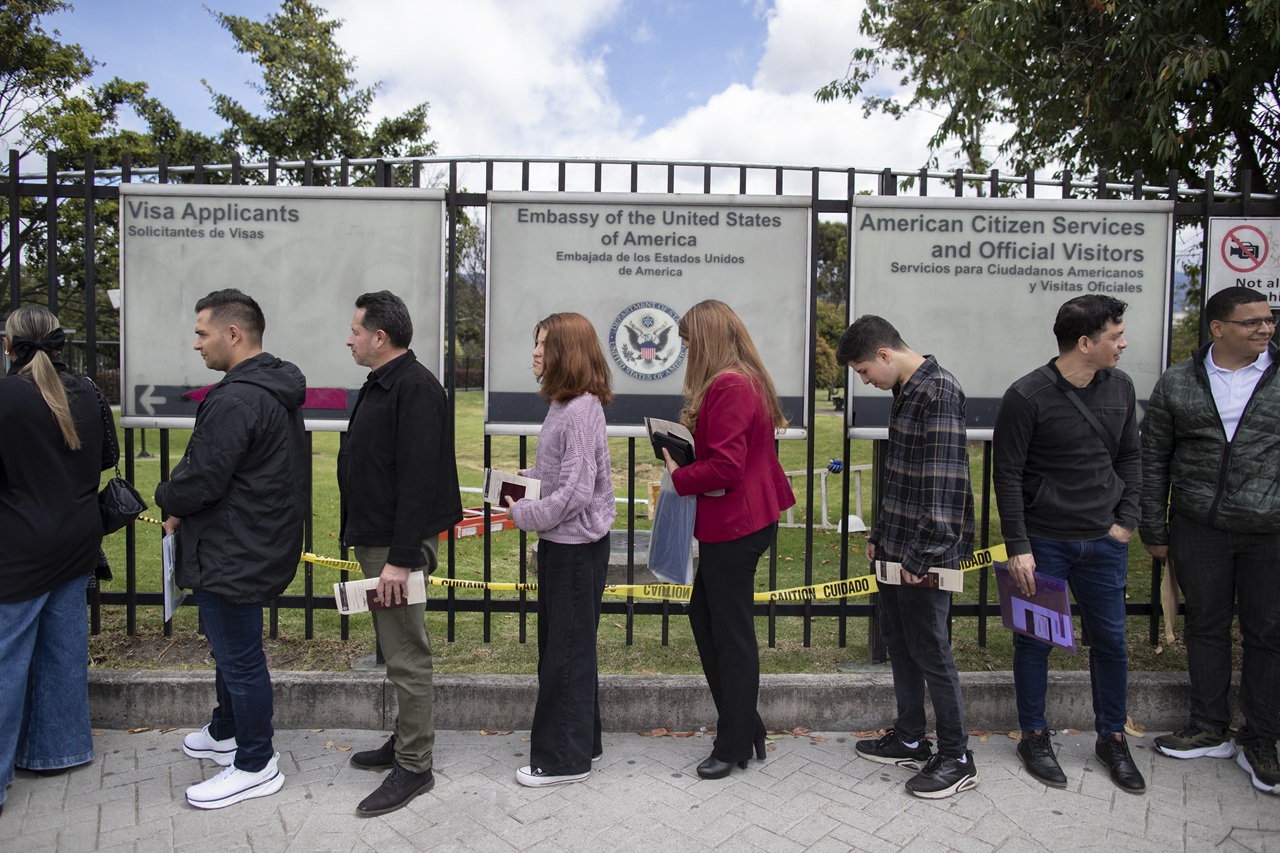
The COVID-19 Hate Crimes Act looks to tackle AAPI hate head on, but amendments could curb its power
The bill passed the Senate with overwhelming bipartisan support, but some proposed changes mean its path forward is still unclear.
In a rare bipartisan effort, the U.S. Senate passed legislation on Wednesday, April 14, that intends to combat the rise in anti-Asian hate crimes.
The bill, known as the COVID-19 Hate Crimes Act, was pushed through by a vote of 92-6. If it ultimately becomes adopted, it would establish a new position within the Justice Department to expedite the review of pandemic-related hate crimes.
Stop treating us as the "other."
— Tammy Duckworth (@SenDuckworth) April 15, 2021
Stop blaming us for this virus.
Stop attacking us on the street.
Stop the hate.
Pass the COVID-19 Hate Crimes Act.
The bill still stands on rocky ground, as Republicans are expected to introduce about 20 amendments to the original proposal.
The bill is aimed at improving the tracking and identification of anti-Asian hate crimes, which have been exponentially increasing since the start of the global pandemic last March.
This is a critical endeavor as many of these crimes tend to go underreported.
According to Toshiko Hasegawa, the Executive Director of the Washington State Commission on Asian Pacific American Affairs, many people don’t always report instances of racial violence, discrimination and harassment.
Hasegawa explained that this is partly due to language barriers and access issues. She also said that there are cultural barriers that breed distrust in the government and law enforcement.
The organization Stop AAPI Hate, built an online self-reporting tool for AAPIs to report their experiences, and it has provided the country with the most accurate and updated data on this crisis.
Initially, the bill seemed unlikely to garner the 60 necessary votes to end deliberation and proceed towards a final vote. But luckily, Republicans chose not to filibuster, somewhat because Senate Majority Leader Mitch McConnell, whose wife Elaine Chao is Taiwanese American, signaled he was receptive to working on it with Democrats.
“I can tell you, as a proud husband of an Asian-American woman, I think this discrimination against Asian-Americans is a real problem. And it preceded the murders that were recently on full display, and I’m hoping we can work out an agreement,” McConnell said, according to the Washington Post.
On Tuesday, Democratic lawmakers expressed that they are prepared to collaborate with Republicans to make the bill stronger and secure passage by implementing the broader bipartisan “No Hate Act,” an amendment which seeks to conduct federal responses to all hate crimes.
If signed into law, the COVID-19 Hate Crimes Act will efficiently track anti-Asian hate crimes, train law enforcement to better identify anti-Asian racism and designate an official in the Justice Department to examine and speed up pandemic-related hate crime reports, among other resolutions.
Rep. Grace Meng, co-author of the bill, said on Tuesday at the Capitol that the Asian-American community has been fighting more than one crisis: “the COVID-19 pandemic and the anti-Asian hate.”
Meng then detailed well-documented but “horrifying” images of people that have been shoved and beaten in public attacks, and spoke of her own conversations with hate crime survivors, including the families of the victims of the deadly shootings last month in Atlanta.
“Combating hate should not be a partisan issue. It’s about the safety of all Americans,” Meng said.
RELATED CONTENT
This bill is the most significant congressional response to the alarming increase in racist sentiment against Asian-Americans, incited in part by the xenophobic rhetoric spewed by former President Donald Trump. The crisis also reminds us of the earlier eras of racism towards Americans of Chinese, Japanese and others of Asian heritages.
I spoke with @KulkarniManju from @StopAAPIHate about the rise in anti-Asian hate crimes and incidents, and how the former president used the coronavirus to fuel racism in the United States. #infocussocal #asianhatecrimes #StopAsianHate pic.twitter.com/rywJuLcbbw
— Tanya McRae (@TanyaMcRaeSoCal) April 5, 2021
Although the White House issues a statement on Wednesday that indicated explicit support for the bill’s passage, its future remains uncertain.
Six Republicans voted against the bill, including Sens. Ted Cruz, Tom Cotton and Josh Hawley, all potential presidential hopefuls.
In the past year, there were almost FOUR THOUSAND anti-Asian hate crimes. Those were just the ones that were reported. Check out who voted AGAINST a bill to stop Asian hate. Surprised?#StopAsianHate and consider supporting some good causes at https://t.co/BfRj5pnI1b https://t.co/RVXQbm2Le9 pic.twitter.com/XzDYxT98X4
— Daniel Kwan - Founder, Order of the Immortal Lotus (@danielhkwan) April 15, 2021
Sen. Hawley’s reasoning for his “no” vote was supposedly in regards to the bill’s scope.
“The bill is hugely broad, hugely open-ended, mandates all of this data collection in expansive categories that the federal government will collect and maintain. That concerns me,” he said.
Senate Majority Leader Chuck Schumer is open to changes to the bill, but agrees that staying silent is not an option and that there is no reason that “this shouldn’t be a bipartisan bill that passes the Senate.”
Though the proposal is timely, the legislation is also quite modest, what supporters and advocates see as a humble yet necessary first step in a federal response to the rise in hate crimes.
If my Republican colleagues have a better, stronger approach to combating anti-Asian hate crimes than the COVID-19 Hate Crimes Act – a modest, important step to #StopAsianHate – I'm all ears. Otherwise, stop making excuses and vote for the bill.
— Senator Mazie Hirono (@maziehirono) April 12, 2021
Sen. Mazie Hirono, D-Hawaii, spoke about her own experiences.
She said she is no longer comfortable taking a walk with her headphones because of the attacks on Asian-American and Pacific Islanders in the U.S.
“An attack on one group in our country is truly an attack on all of us,” she said, in hopes that Republicans will have a change of heart and support the bill.











LEAVE A COMMENT: